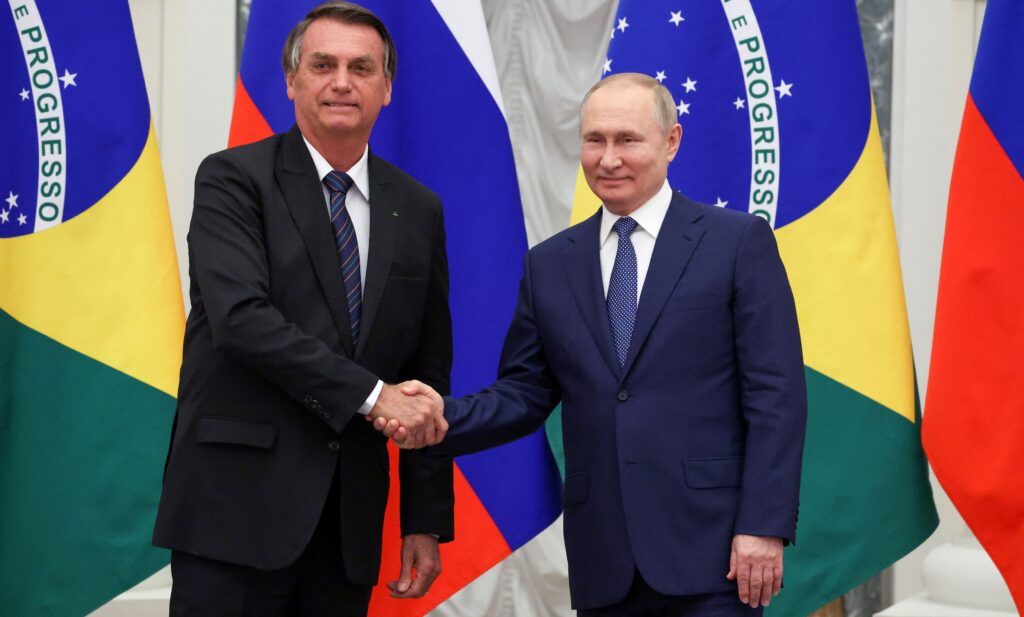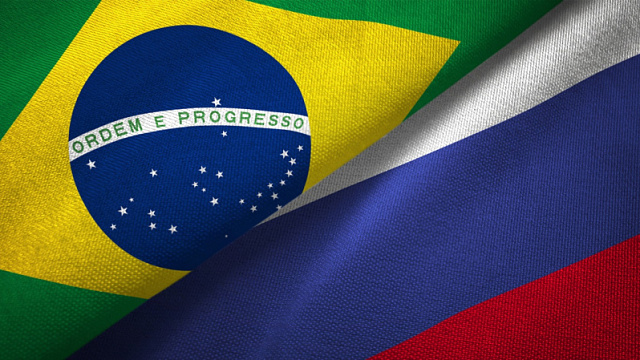The material was provided by Georgy Kutyrev, candidate of political sciences.
A quarter of a century ago, on June 22, 2000, Russia and Brazil signed a Partnership Agreement, which became the cornerstone for the development of bilateral cooperation. This document, based on the principles of mutual respect, sovereign equality and the desire for a fair world order, laid the foundation for a strategic partnership that has yielded significant results and opened up new horizons over the past 25 years.
Today, looking back at the path we have traveled, we can confidently say that relations between Moscow and Brasilia have become an example of a sustainable dialogue between two major economies united by common goals and complementary interests.
Economic cooperation has become one of the brightest pages of this partnership. Over 25 years, trade turnover between Russia and Brazil has grown several times, reaching a record 12.4 billion US dollars (more than 970.8 billion rubles) in 2024, of which 11 billion dollars (more than 861.2 billion rubles) were Russian exports.
Russia supplies Brazil with mineral fertilizers, chemical products, wheat, fish products and high-tech goods, including technologies in the field of nuclear energy, telecommunications and pharmaceuticals. Brazil, in turn, has strengthened its position as the largest supplier of meat to Russia – in 2024, meat exports increased by 1.5 times compared to the previous year. Russian IT companies are successfully developing the Brazilian market, and Brazilian manufacturers of auto parts, agricultural machinery and even toothpaste are in demand in Russia.
Despite some challenges, the countries continue to deepen trade ties, including by developing new logistics routes for fertilizer supplies, which could reduce costs for Brazilian farmers.
Political dialogue has also reached a new level. The document on the creation of the “Russian-Brazilian Strategic Union” signed in 2005 cemented the status of both countries as strategic partners. Regular meetings of leaders – from the visit of former Brazilian President Fernando Henrique Cardoso in 2002 to the talks between heads of state Vladimir Putin and Luiz Inacio Lula da Silva in 2025 – confirm the commitment of the parties to strengthening relations. In BRICS and the Group of Twenty (G20), Russia and Brazil coordinate efforts to reform global institutions and advocate for a multipolar world order.
High-tech cooperation has become an important part of the partnership, including in the energy sector. Russian companies continue to supply turbines for Brazilian hydroelectric power plants and implement oil exploration projects in the Amazon. Russia has also expressed its willingness to participate in the completion of the third power unit of the Angra nuclear power plant in Rio de Janeiro and to build new reactors, which is in line with Brazil’s plans to expand its nuclear energy sector.
In the space sector, a landmark event was the flight of Brazilian astronaut Marcus Pontes to the International Space Station in 2006 aboard the Russian manned spacecraft Soyuz TMA-8.

Cultural ties continue to play a key role in strengthening mutual understanding between peoples. A unique project was the school of the State Academic Bolshoi Theater in the Brazilian city of Joinville. It was opened in 2000 and became the only foreign school of its kind. This project, supported by the governments of both countries, was called by the Russian side a “pearl” of friendship between the countries.
The prospects for cooperation remain promising. Russia and Brazil plan to deepen economic ties through investment in infrastructure, logistics, and localization of production. Through the New BRICS Development Bank, Brazil hopes to attract resources for the implementation of large-scale reforms.
Digital interaction is also gaining momentum: the Russian IT sector, which has already won the interest of millions of Brazilian users, is opening the way to new technological initiatives. The environmental direction also remains a priority – the countries continue to coordinate on sustainable development issues, as enshrined in the Treaty.
The Russian-Brazilian partnership has proven its viability over the past 25 years. From trade and technology to culture and international diplomacy, the countries continue to build relationships that not only meet their national interests, but also promote stability and justice in the world. In the context of a changing world order, Russia and Brazil, relying on the spirit of the 2000 Treaty, are ready for new joint projects that will strengthen their positions as key players in the international arena.
🔗https://tvbrics.com/news/rossiya-i-braziliya-25-let-partnerstva-i-novye-perspektivy/

